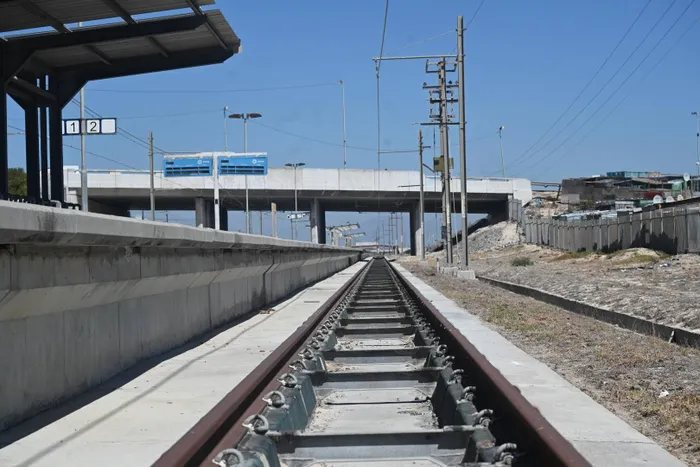
SA's transport utililiy Transnet faces a potential liquidity crisis as rating agency Moody's warns of unsustainable capital structure and exhausted government guarantees.
Image: Supplied
Transnet may receive a government guarantee for its borrowing from commercial banks; however, no direct bailout is currently envisaged, according to the Treasury - global rating agency Moody’s recently warned Transnet could run out of money within three months.
"Today's rating action reflects our growing concern over Transnet's unsustainable capital structure, its deteriorating liquidity position, the lack of a formal agreement so far on additional government support, and the slower-than-planned pace of operational improvements," the rating agency stated.
Moody’s also said that, although the government provided a R47 billion guarantee facility in December 2023, this funding has been fully exhausted.
"We believe the government remains supportive of Transnet and will provide additional guarantees or other assistance to prevent default on its upcoming debt maturities. However, the lack of a formal announcement so far creates uncertainty and heightens default risk," Moody’s added.
Transnet reported that bulk export volumes grew by 15.9% year-on-year in March as it delivers on its turnaround strategy. Statistics South Africa reported that rail transport payload fell by 12% in 2022, following a 6.9% fall in 2021 and an 11.1% drop in 2020.
Meanwhile, road transport surged by 25% in 2022 after growing by 10.4% in 2021. This meant that the percentage transported by rail fell to 15.6% of total land transport payload in 2022, down from 20.6% in 2021 and 23.5% in 2020. Transnet’s plan aims for a 30% share of road transport. In 2024, the rail share of total payload rose to 16.9%, up from 15.7% in 2023.
The Treasury had previously noted that rail volumes fell from 226.3 million tons in 2017/18 to 151.7 million tons in 2023/24 due to derailments, inefficiency, and infrastructure damage. Since then, Transnet has made some progress in its recovery plan, and estimates indicate that rail volumes will reach 165.4 million tons by the end of 2024/25.
In 2023/24, Transnet reported a net loss of R7.3bn, compared to R5.1bn in 2022/23, largely due to increased finance costs. Additional debt and higher interest rates pushed finance costs to R14.3bn in 2023/24. Transnet’s earnings before interest, taxes, depreciation, and amortisation declined from R22.8bn in 2022/23 to R22bn. Revenue gains were offset by rising net operating expenses.
Transnet needs to stabilise and reduce its debt. Since 2018, Transnet has shifted funds from capital expenditure to debt servicing. While this has prevented default, the shift has come at the expense of maintaining and expanding critical infrastructure.
The government is now providing direct support to critical infrastructure projects, such as the expansion of the landside container terminal in Cape Town, while avoiding debt relief or general balance sheet support. Total borrowing increased by R7.6bn to R137.7bn between end-March 2023 and end-March 2024, underscoring the need for better debt management.
Two priority infrastructure projects involving Transnet assets include the Ukuvuselela Gauteng-Eastern Cape High-Capacity Rail Corridor, which aims to upgrade the South Corridor railway line and expand port infrastructure for automotive handling.
Construction phase of this project is expected to yield some 10 000 short-term jobs. The second project is the Cape Town Container Terminal Expansion Phase 2B, which aims to expand landside capacity at the terminal.
This project includes rehabilitating and upgrading the container stacking pavement, expanding the truck staging area, and building new rail sidings to facilitate the export of table grapes, citrus, and deciduous fruit. A total of R320m is allocated to this project in 2025/6 and R888m in 2026/7.
Although Transnet can access capital markets, its ability to raise more funding is constrained by accumulated debt levels. These levels have led to unsustainable interest costs and refinancing risk, resulting in liquidity pressures.
iVisit: businessreport.co.za